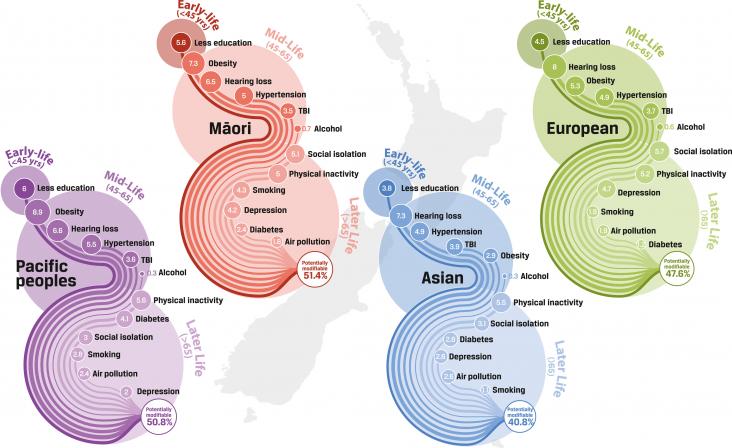This study examines whether ethnic minorities in general and Asian minorities in particular have perceived an increase in discrimination during the COVID-19 pandemic, a phenomenon known as COVID-19–as

This study supports SDG 3 and 10 by showing that the risk of dementia and the modifiable risk factors for dementia vary substantially among the different ethnic groups in New Zealand (European, Māori, Asian, and Pacific people), indicating that dementia prevention efforts should be tailored to each ethnic group, to account for these differences.
This Viewpoint describes a feminist intersectionality framework to tackle digital health's gender inequities and provide recommendations for future research.
This study ties to all of the goals affected by climate change and health, including Goals 2, 3, 6, 7, 10, 11, 12, and 13, by investigating which methods by advocates work best to garner support for effective actions on climate change.
Sea level rise (SLR) has and will continue to impact coastal communities in the coming decades. Despite the widespread availability of data on SLR projections, little is known about the differential impact of SLR on minority or economically disadvantaged populations. In this study, we aim to identify the geographic areas in which low-income and communities of color along the North and South Carolina coastline in the United States will experience the most severe effects of SLR.
Development COVID-19 vaccines in a record time has been an unprecedented global scientific achievement.
The authors evaluated the quality and outcomes of in-hospital ACS management for White patients vs patients of colour, within a universal healthcare context.
Elsevier,
Neural Engineering Techniques for Autism Spectrum Disorder Volume 1: Imaging and Signal Analysis 2021, Pages 287-313
This book chapter advances SDG3 Good Health and Wellbeing and SDG10 Reducing Inequalities by real-time wearable on-chip processor for the early prediction of the emotions in patients with Autism spectrum disorder (ASD).
This content aligns with Goal 10: Reduced Inequalities by examining the racial disparities associated with vascular pathologies in order to improve care among an increasingly diverse patient population.
Objective: Smoking is an important causative factor of chronic obstructive pulmonary disease (COPD), and females are considered more susceptible to the effects of smoking than males.
